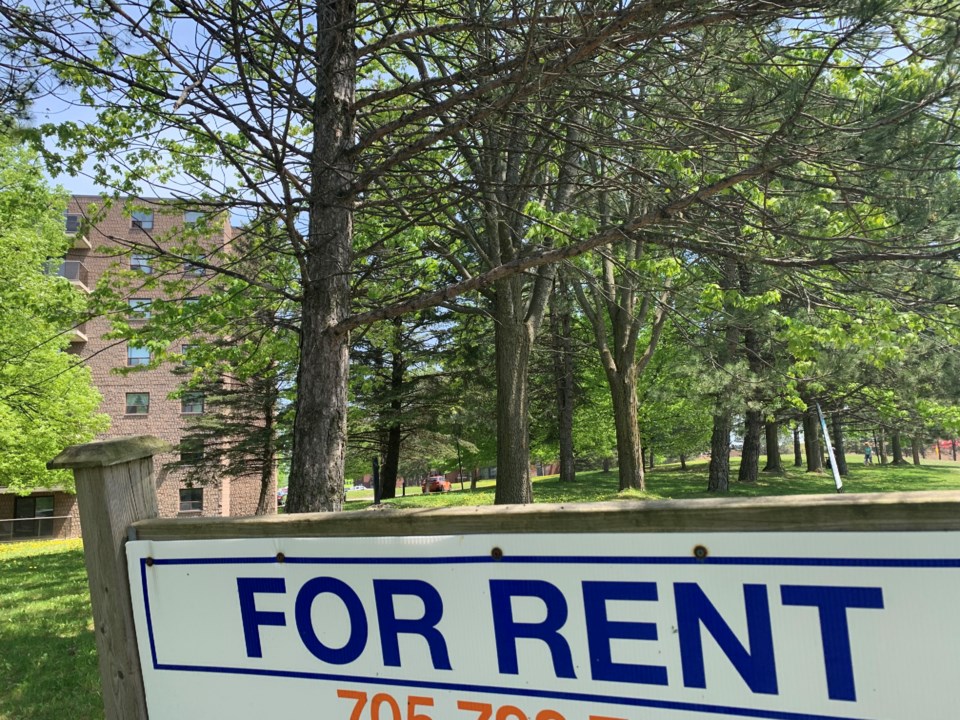If you have ideas or questions about affordable housing in Collingwood, now’s your chance to have your say.
On Aug. 15, the town will be holding a public consultation session at the Collingwood Public Library led by N. Barry Lyon Consultants on their recently released draft strategic options report, that will help inform the affordable housing master plan for the town.
The report builds on recommendations from the town’s affordable housing task force first released to the public in 2021 on different ways the town could improve the local housing situation, and offers concrete suggestions on how the town can improve housing affordability.
“This is a very encouraging step,” said Doug Linton, chair of the town’s affordable housing task force. “It’s much more nuanced and detailed than what we originally came up with.”
“This is all part of the process of developing this really strong master plan to tackle the affordability issue,” he said.
According to a housing needs assessment completed by the town in June 2023, there are next to no options in the Collingwood housing market for moderate-income households in both ownership and rental tenures. A shortage in rental housing is being made worse by insufficient new rental developments, and as a consequence, rental rates have sharply risen.
To accommodate the forecasted population growth to 2051, more than 10,000 new housing units will be required.
The assessment found the average purchase prices of a new single-detached home in Collingwood is $1,000,000, a semi-detached $705,000, townhouse $725,000 and condominium apartment $720,000. For resale homes, the average purchase prices varied slightly, with single/semi-detached homes going for $1,085,000, townhouses for $820,000 and condominium apartments for $640,000.
When it comes to rentals, the assessment found new purpose-built rental apartments go for $2,125 monthly. Old purpose-built rental apartments are fetching rents at $1,935, while leased single/semi-detached homes rent for $2,950, townhouses for $2,700, condo apartments for $2,300 and basement apartments for $1,725.
The draft strategic options report suggests four key actions the town should be taking to address housing affordability locally:
- Policy and process reform through land-use planning
- Offering development incentives to reduce the cost for providers who are willing to build the types of housing that Collingwood needs
- Taking a leadership role by declaring new residential development a priority, identifying public land for housing and helping to connect parties with funding programs
- Advocating to other levels of government (federal and provincial) for help in solving affordability issues
The report was informed by the task force, community/stakeholder engagement, and accessing research and expertise on best practices in housing.
“It might be challenging for people in Collingwood to take a look at and accept some of the kinds of things they’re recommending, but I think, without question, it’s a step forward toward being able to put a local spin on the affordability issue,” said Linton.
In addressing misconceptions circulating in the community about affordable housing, Linton says general discussions tend to miss drawing lines between the different parts of the housing spectrum.
“The discussion always goes back to homelessness. People always associate the homeless population with the affordability of housing in general. I think there are distinctions that need to be made there, especially around what the municipality can actually do,” he said.
The town’s affordable housing master plan will focus on the housing needs of moderate-income households, which is defined in Collingwood as between $36,000 and $51,000 for renters and $70,000 and $98,000 for homeowners.
The County of Simcoe is the responsible government body for addressing homelessness, transitional housing and low-income housing in Collingwood.
Linton also notes that NIMBY (not in my backyard) attitudes can be a roadblock to implementing some of the changes that may be needed to address affordability at the municipal level, such as encouraging higher-density development.
“There are so many examples of good design and planning where you have higher-density structures and they work, they’re beautiful and they fit into the community,” he said.
The final affordable housing master plan is expected this fall and will include details such as costs and prioritization. Some recommendations will be considered for inclusion in the 2024 budget cycle for immediate action and staff will bring a multi-year action plan to council for review in early 2024.
Linton says he hopes the community will turn out to give input on the plans as they stand, whether that feedback is positive or negative.
“The draft has laid out pretty clearly where we can make changes that will have the greatest impact. It’s quite a strong document,” said Linton. “I’m really looking forward to hearing what members of the public have to say.”
The public consultation session on the draft strategic options report that will inform the town’s affordable housing master plan will take place on Aug. 15 at 5 p.m. in Community Rooms B and C at the Collingwood Public Library, and will be broadcast via Zoom. Pre-registration is encouraged. Comments may also be submitted via email until Aug. 31 for consideration to [email protected].
To access the report, as well as a timeline of all work the town has done on the affordable housing file to date, click here.
